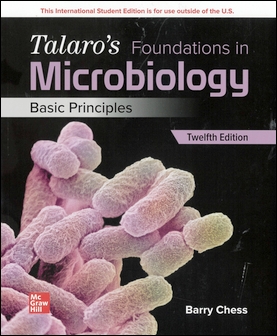書籍分類

Talaro's Foundations in Microbiology: Basic Principles 12/e (電子書採用Talaro's Foundations in Microbiology 12/e)
作者:Barry Chess (Kathleen Park Talaro)
原價:NT$ 1,600
ISBN:9781266182617
版次:12
年份:2024
出版商:McGraw-Hill
頁數/規格:626頁/平裝彩色
參考網頁:Talaro's Foundations in Microbiology: Basic Principles 12/e
版次:12
年份:2024
出版商:McGraw-Hill
頁數/規格:626頁/平裝彩色
參考網頁:Talaro's Foundations in Microbiology: Basic Principles 12/e
內容介紹 目錄 作者介紹
- Description
Talaro’s Foundations in Microbiology: Basic Principles is an allied health microbiology text with a taxonomic approach to the disease chapters. It offers an engaging and accessible writing style through the use of case studies and analogies to thoroughly explain difficult microbiology concepts.
分類位置:
理工 > 生命科學 > 微生物學


